EPR Toolbox
The EPR Toolbox developed by the PREVENT Waste Alliance is a collection of internationally relevant knowledge on the topic of EPR for packaging.
Scroll to learn more
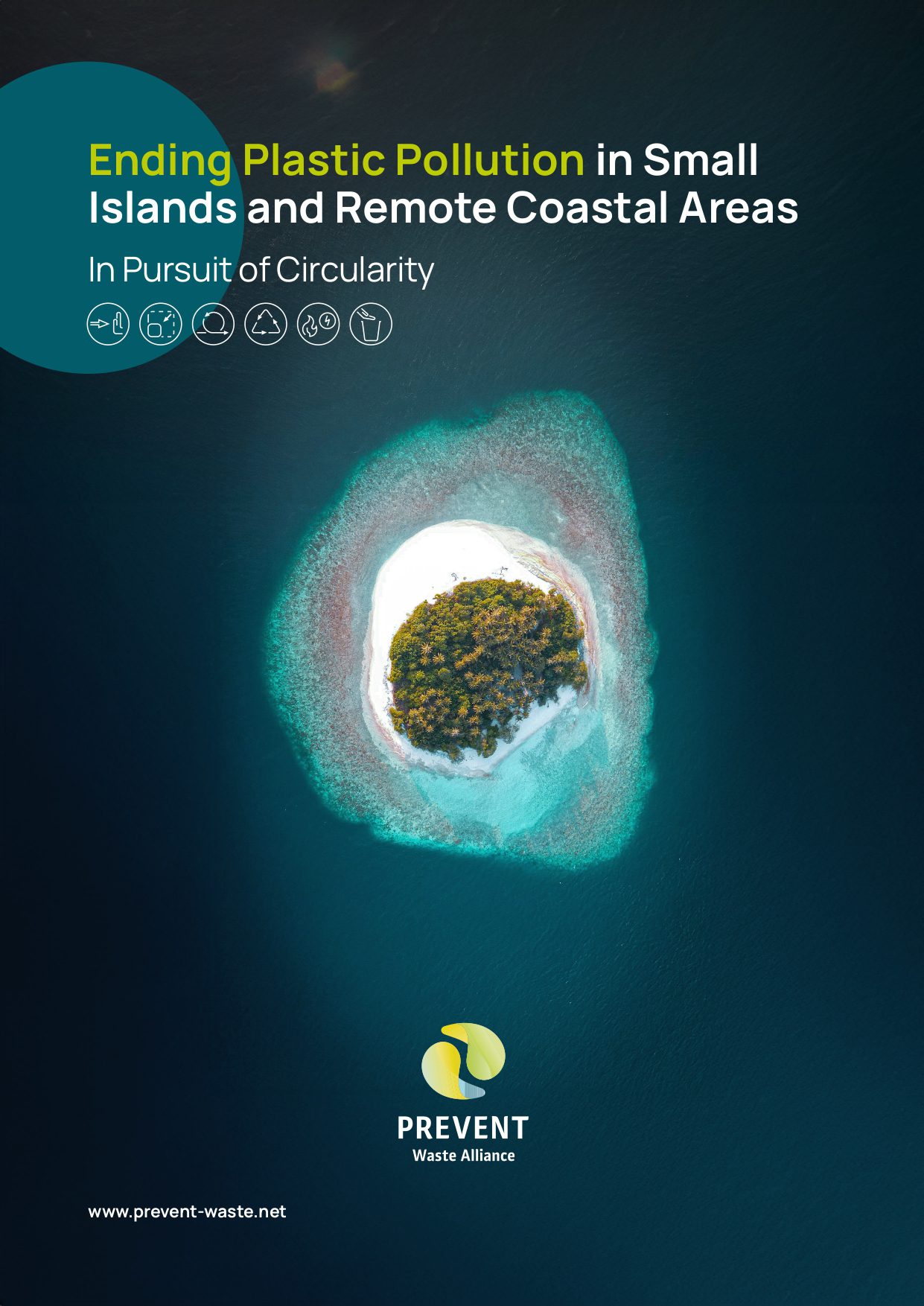
Small islands and remote coastal communities (SICs) are in the global spotlight as they are particularly affected by the global plastic pollution crisis and must deal with the combined input of plastics from the sea via ocean currents and from locally used plastics. There is an urgent need to take steps to reduce the current plastic footprint, stop the tide of plastic pollution and cut off its leakage into the environment. This white paper identifies and showcases successful solutions for SICs and assesses them against a range of criteria, ensuring long term sustainability and replication.
Download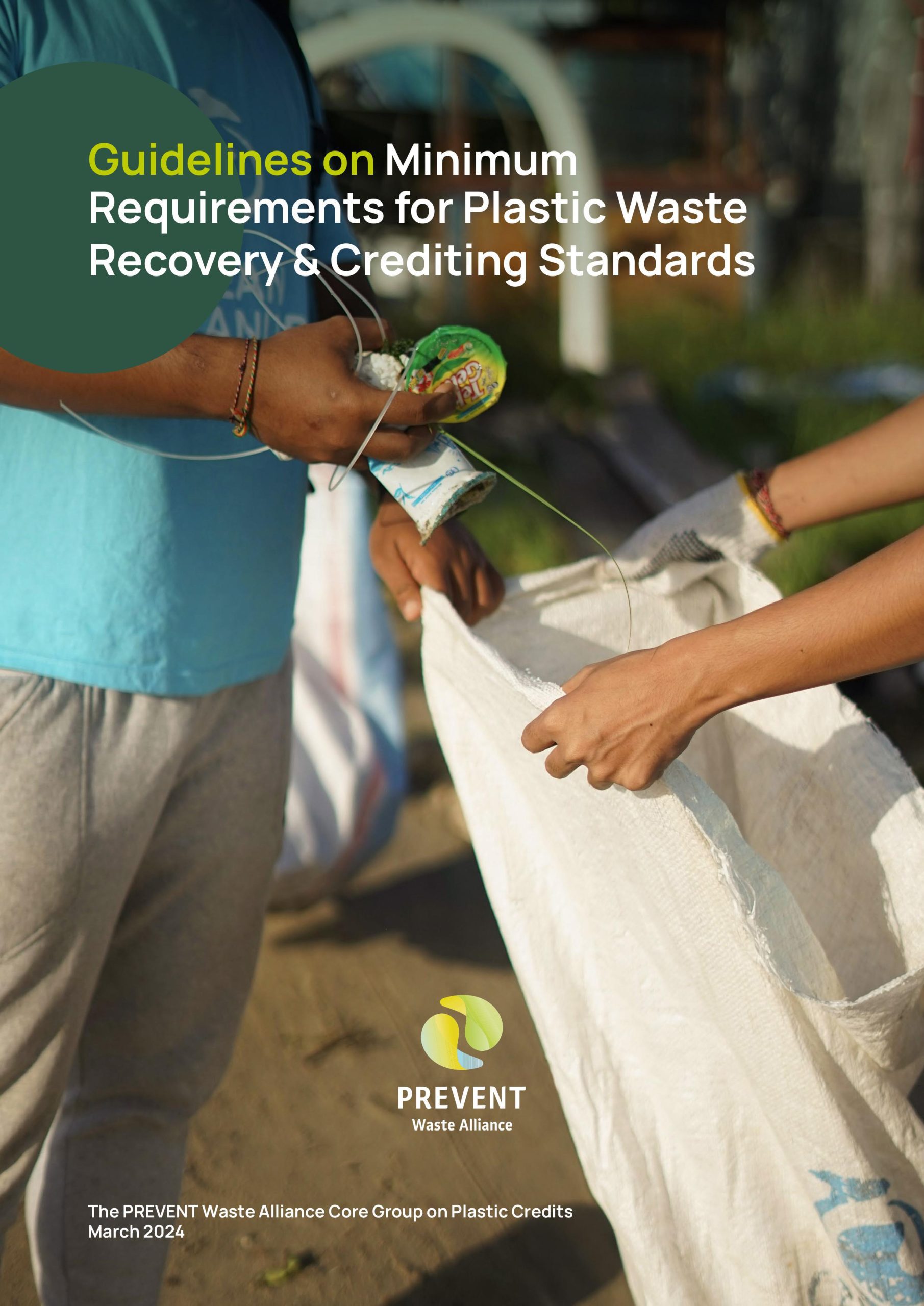
This publication is a joint effort by plastic waste recovery organisations, all of them operating in developing countries and all of them members of the PREVENT Waste Alliance. These practitioners have gathered with the aim of improving the level of plastic waste recovery services in developing countries, so that ultimately more funds can flow to these services and higher environmental and social impacts can be achieved.
Download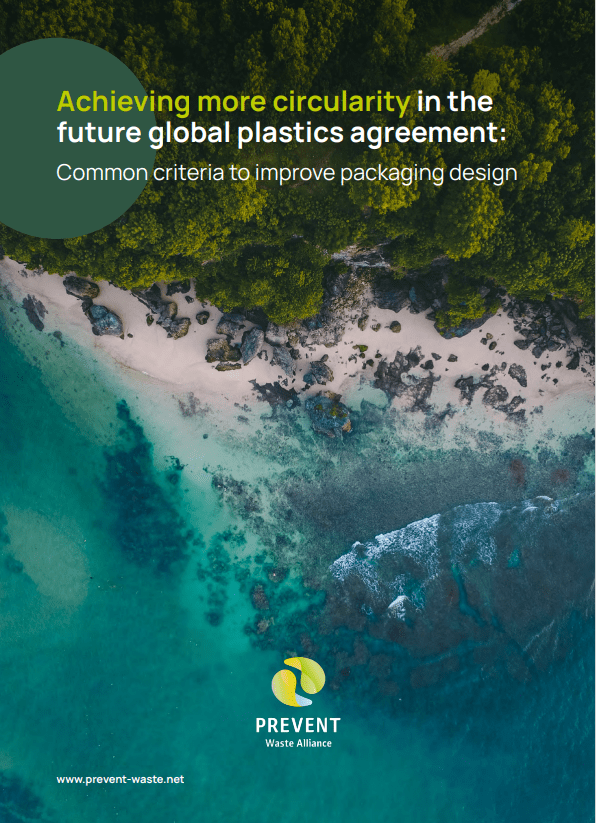
The report provides guidelines for improving the design of plastic packaging by drawing on both circular product design and eco-design principles. It informs stakeholders and decision-makers from the private sector, public institutions, and governments on the potential of improved product design as a way to prevent plastic pollution and drive more circularity.
Download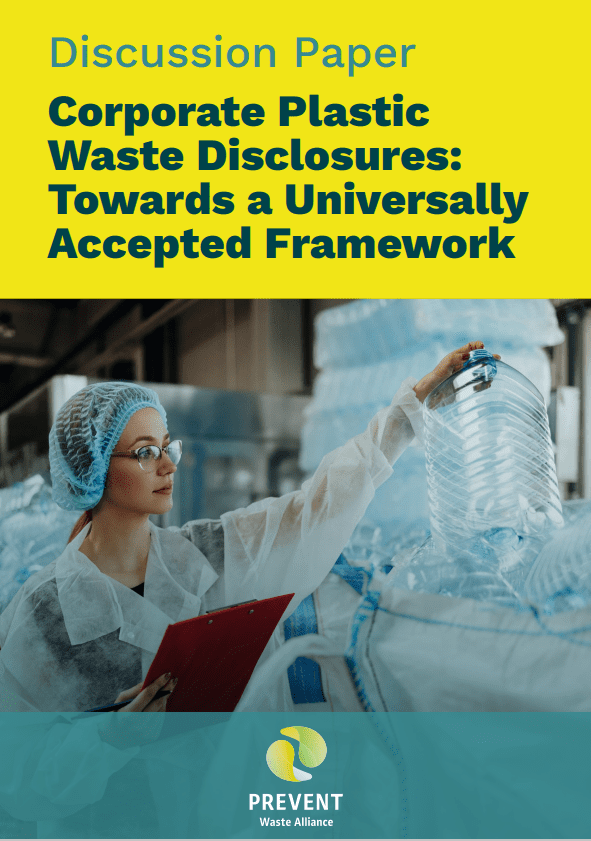
To move towards a universally accepted framework for corporate plastic waste disclosure, the sub-working group on Plastic Accounting (Corporate Stream) has developed a discussion paper. It summarizes the existing frameworks for corporate plastic waste disclosures and provides recommendations for their improvement.
Download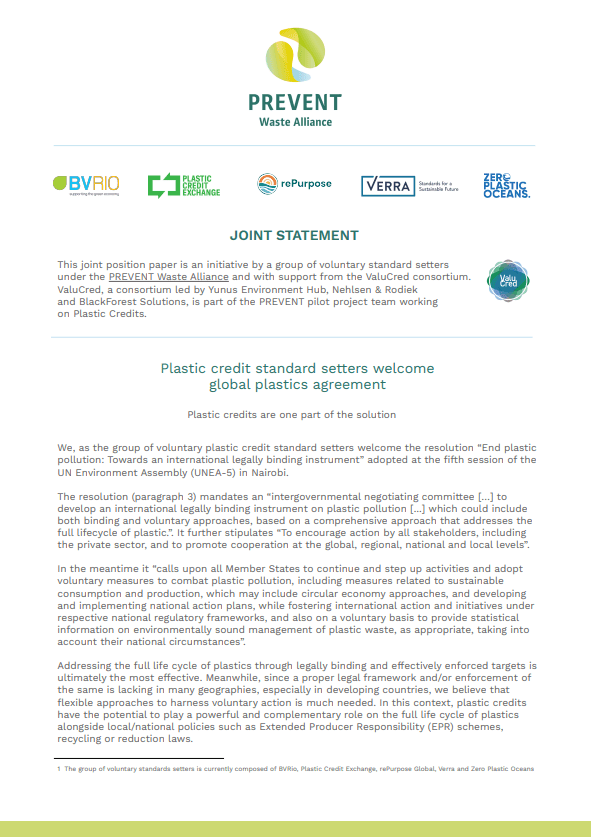
Plastic credits are one part of the solution to tackle the plastic waste crisis – this is the message of the group of plastic credit voluntary standard setters who are active in the PREVENT Waste Alliance. The group for the first time has developed a joint position.
Download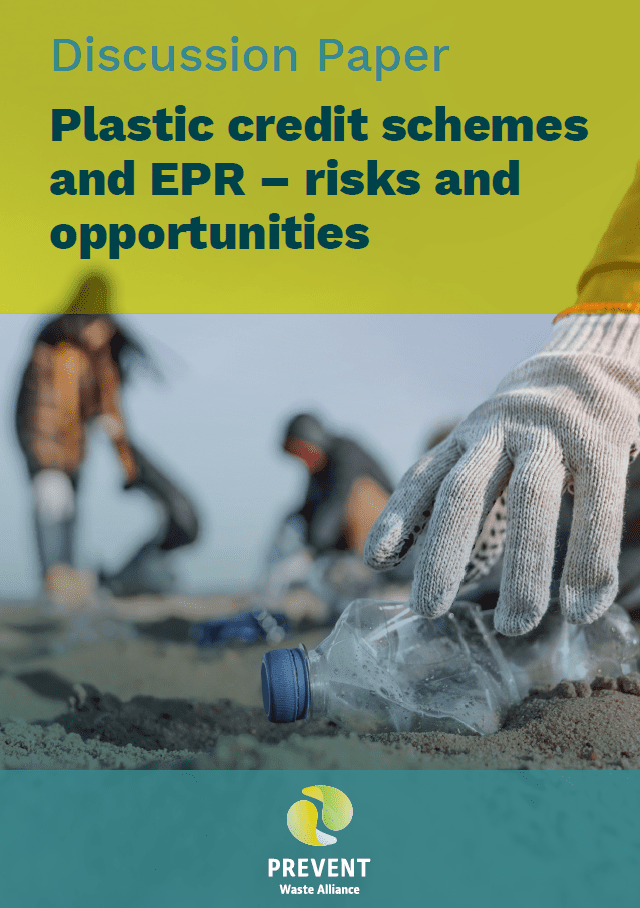
The discussion paper was developed within the PREVENT Waste Alliance sub-working group on plastic credits. It outlines necessary quality requirements and standards to ensure that plastic credit schemes lead to more circularity and do not undermine incentives for EPR and waste prevention.
Download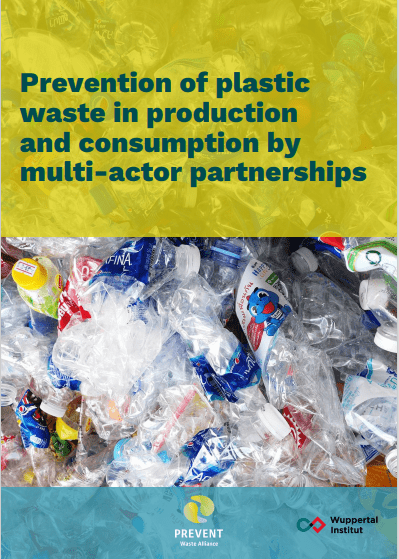
In this study, the working group on plastic presents 17 best practice examples. From these, recommendations for the reduction of plastic waste are drawn, and success factors, important steps and conclusions regarding the necessary political framework conditions are presented.
Download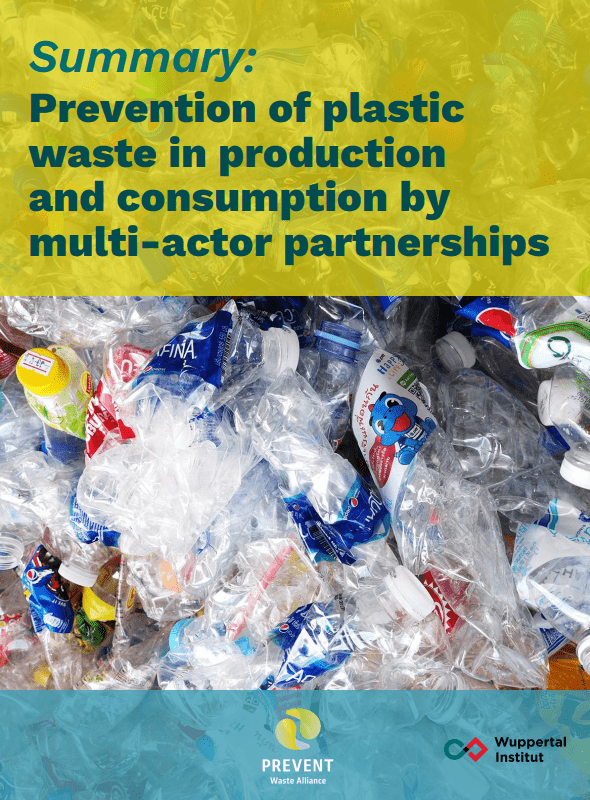
This summary presents the most important findings of the study „Prevention of plastic waste in production and consumption by multi-actor partnerships“.
Download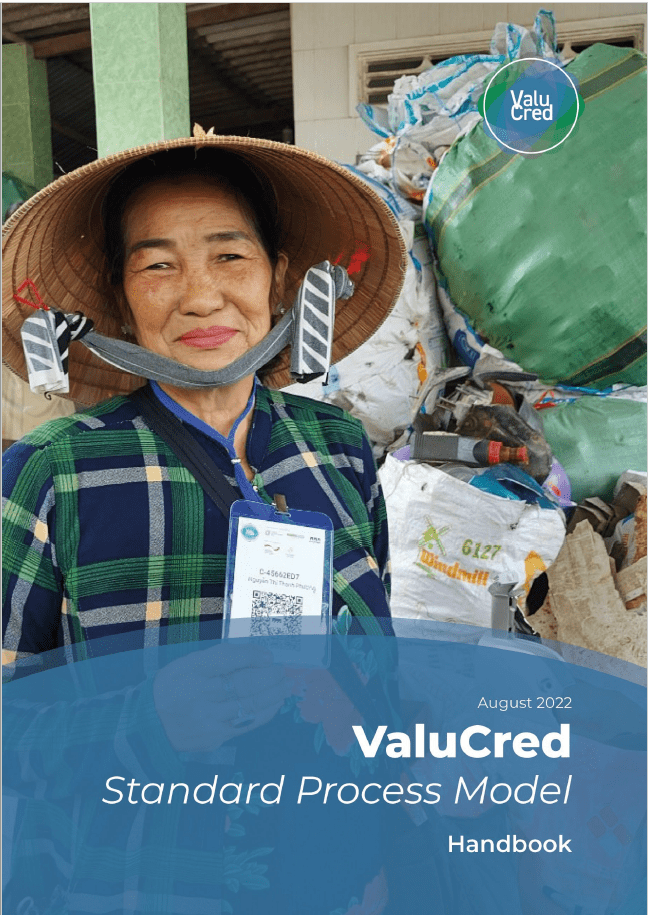
The ValuCred Handbook introduces the key concepts of the Standard Process Model (SPM). It explains guiding principles for the integration of minimum requirements for the plastic credit market to foster greater transparency and accountability of all stakeholders involved.
Download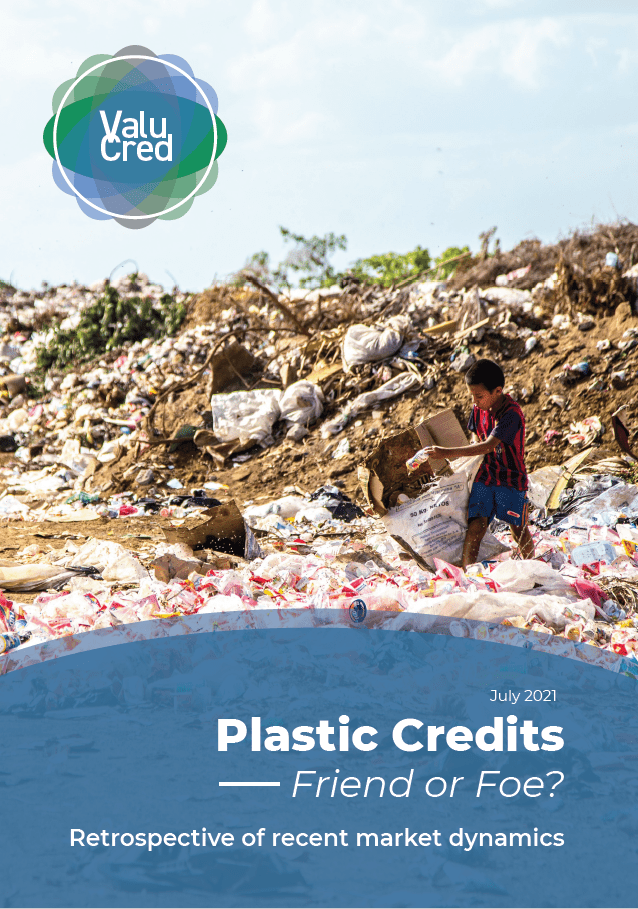
ValuCred analysed the plastic recycling sector and specifically the Plastic Credit market in terms of its ability to create the much needed market transition, anchoring social justice and sustainability firmly within its accounting mechanisms. This analytical report focuses on the seven most relevant voluntary market standards in the newly evolving Plastic Credit market space.
Download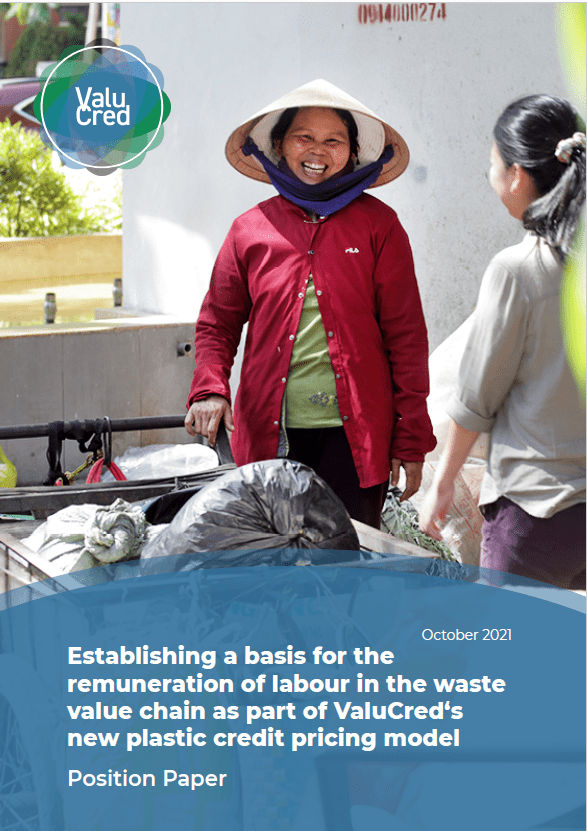
ValuCred has scrutinized a variety of existing measures and concepts to devise adequate remuneration which assures sustainable income levels for waste workers in the Global South. This position paper outlines four identified measures of orientation.
Download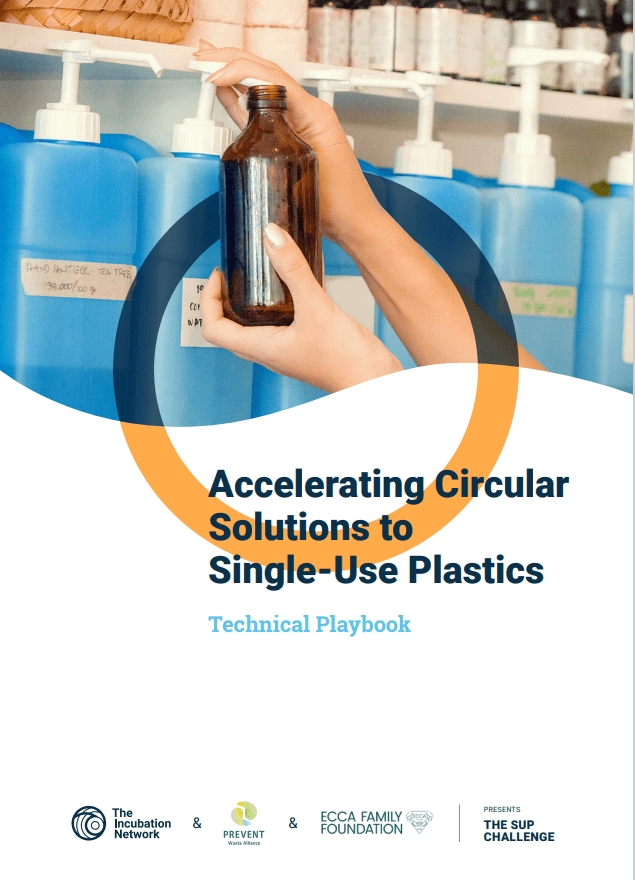
The Technical Playbook serves as an end-to-end guide for market acceleration of circular products. It outlines activities that should be undertaken to support interventions between companies developing and offering circular solutions and partner companies that are their target customers.
Download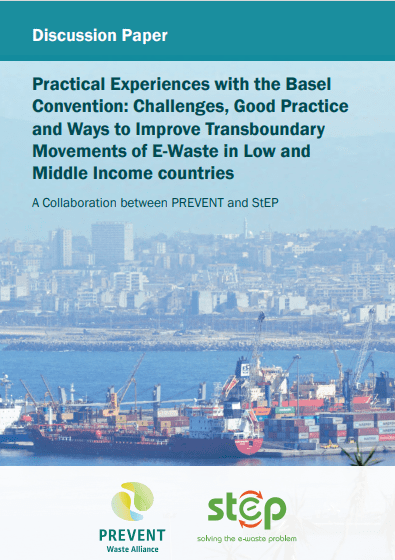
The discussion paper was developed by the PREVENT-StEP joint working group. It aims to gather practical experiences with the export of waste electrical and electronic equipment and fractions thereof from low- and middle-income countries to environmentally sound management (ESM) facilities abroad according to the Prior Informed Consent (PIC) notification procedures of the Basel Convention.
Download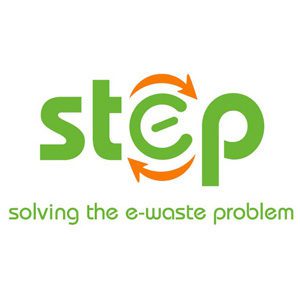
Following a first exchange with the Basel Convention Secretariat in February 2021 on the challenges caused by notification procedures for the transboundary movement of e-waste, PREVENT and StEP have initiated a cross-alliance working group to collect experiences from members in different countries. The aim is to find ways to improve local implementation and facilitate transport to qualified recycling facilities abroad.
Learn more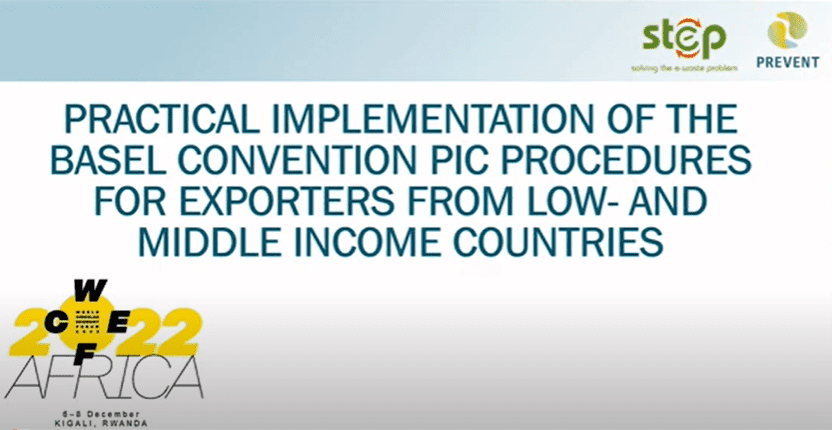
As part of the World Circular Economy Forum 2022, the StEP Initiative, Closing the Loop and the PREVENT Waste Alliance co-organized the session “Basel PIC Procedure for Exporters from Developing Countries”.
Watch on YouTube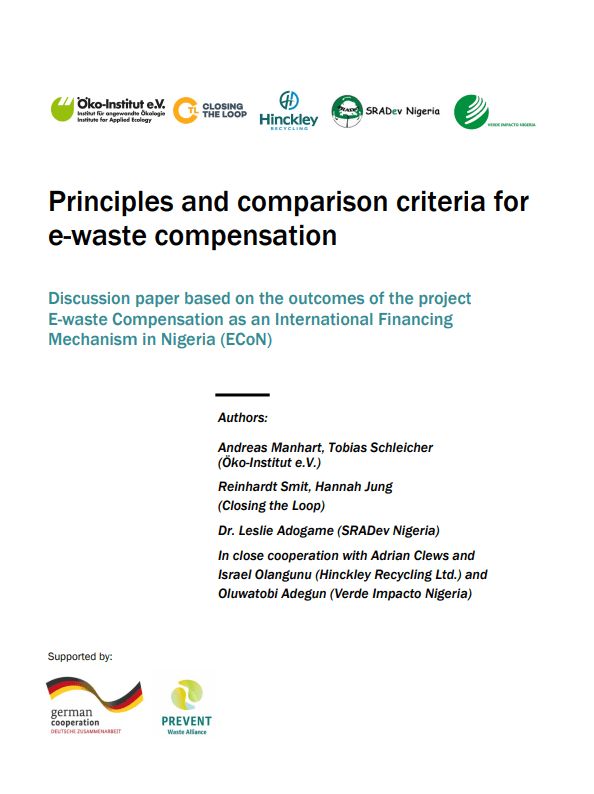
E-waste compensation is a relatively new financial mechanism. Therefore, it is essential to define guardrails on how the concept should be implemented in practice. This paper contains 11 general principles of effective e-waste compensation.
Download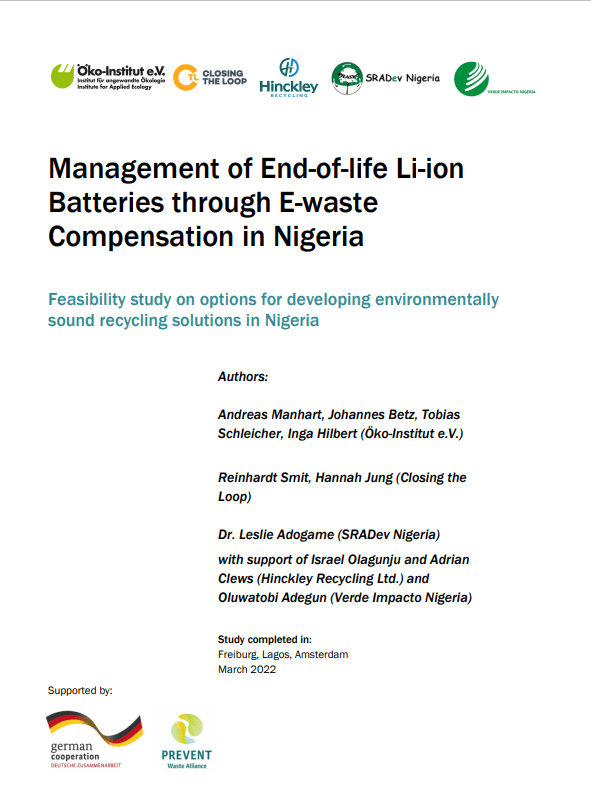
The project E-Waste Compensation as an international financing mechanism in Nigeria (ECoN) completed a feasibility study which addresses the possibilities for responsible management of end-of-life lithium-ion batteries from domestic consumption in Nigeria.
Download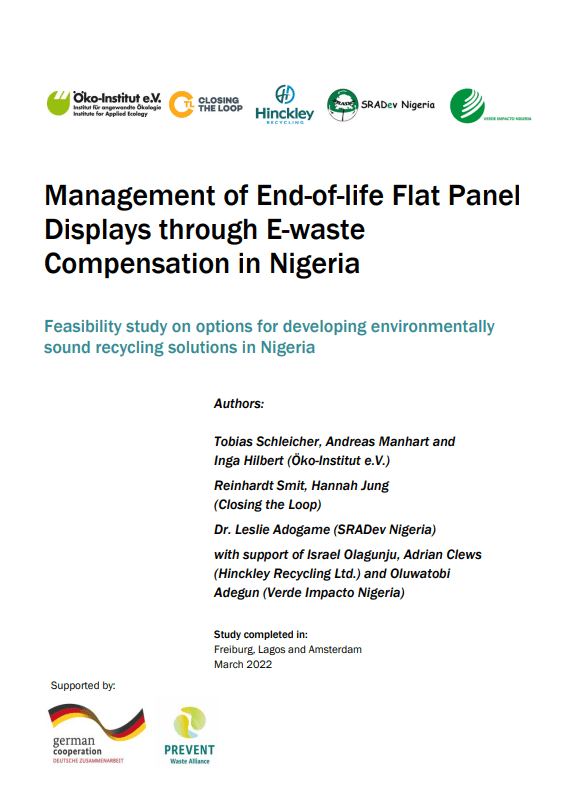
The project E-Waste Compensation as an international financing mechanism in Nigeria (ECoN) completed a feasibility study which addresses the possibilities for responsible management of end-of-life flat panel displays in Nigeria.
Download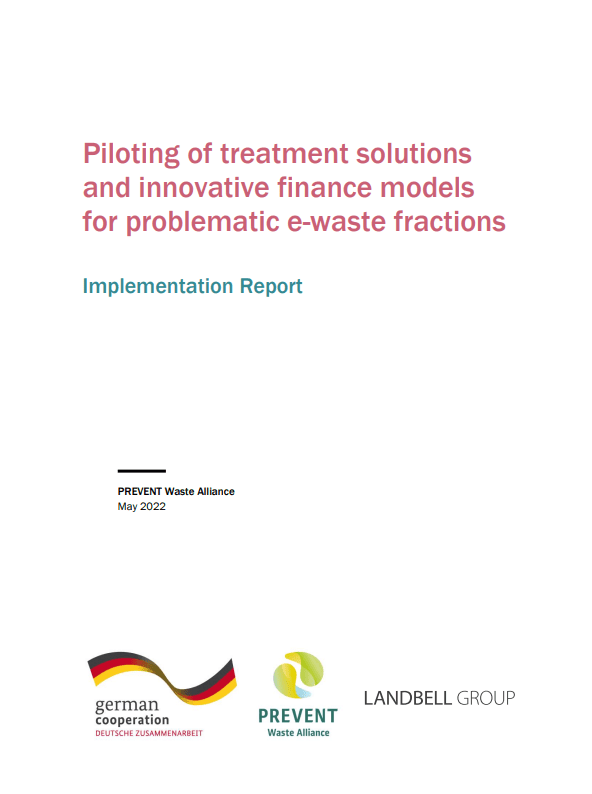
From 2020 to 2021, the PREVENT project “Finding solutions for problematic e-waste fractions in the Balkans, Latin America and East/West Africa” developed finance and treatment solutions for PUR Foams, lithium ion batteries, e-waste plastics and mixed waste shipments with recyclers.
Download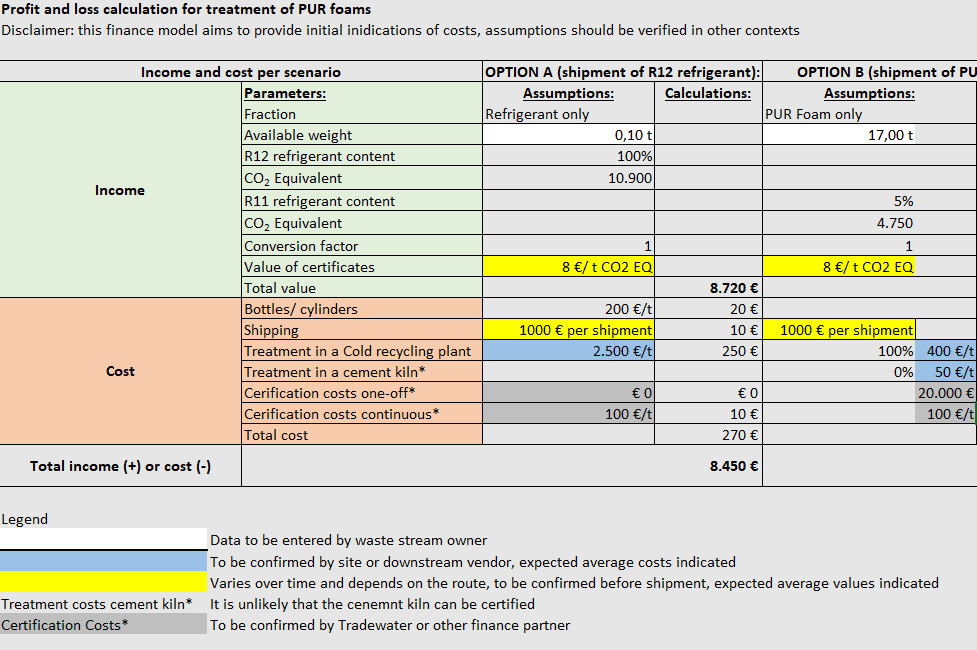
This overview of finance models (Excel file) for PUR Foams, lithium ion batteries, e-waste plastics and mixed waste shipments was developed by the PREVENT project “Finding solutions for problematic e-waste fractions in the Balkans, Latin America and East/West Africa".
Download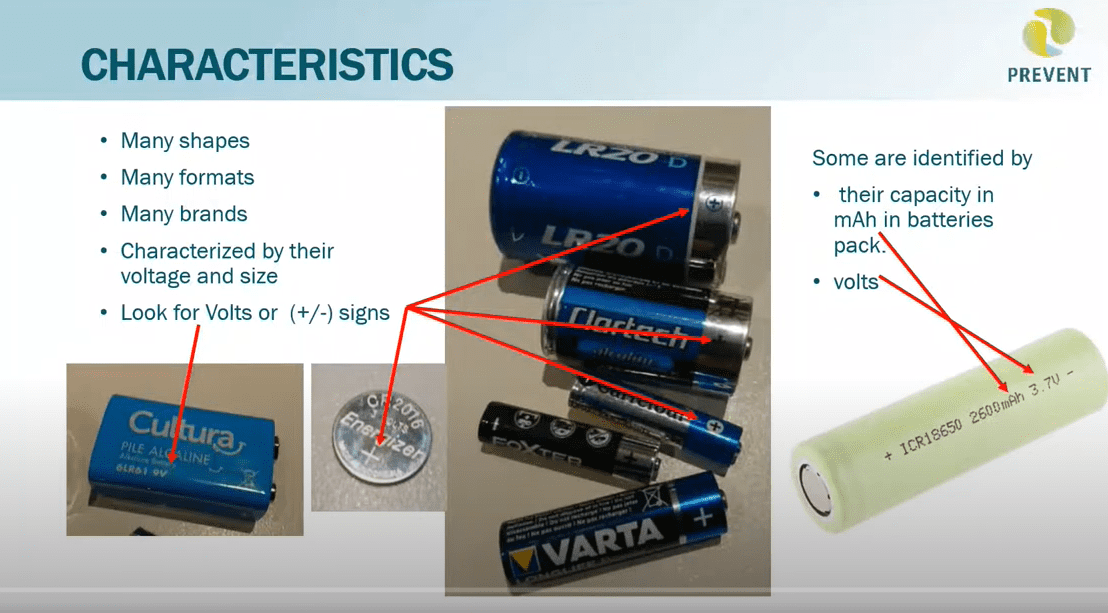
The PREVENT Waste alliance has hosted online trainings on e-waste plastics and battery recycling. The trainings focus on identification, sorting and end-of-life management. The training on battery recycling is also available in French.
Watch on YouTube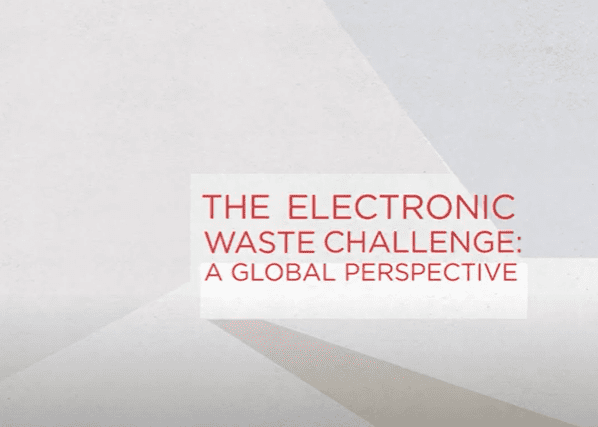
Growing electronic waste volumes are a challenge for low and middle income countries. Informal recycling of valuable and hazardous components creates an income opportunity for the poor, but poses major health and environmental risks and also reduces resource efficiency.
Watch on Youtube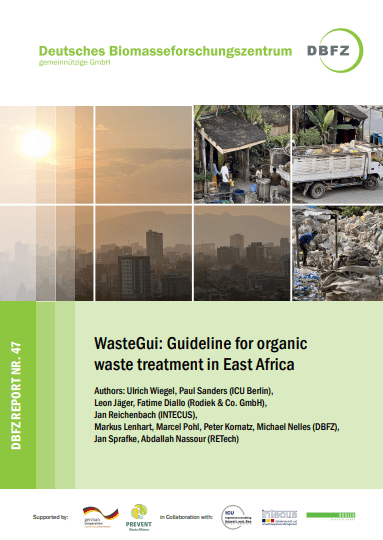
This report provides a detailed overview on concepts for collection, transport and final treatment of organic waste to inform politics, administration, research institutions, and the private sector.
Download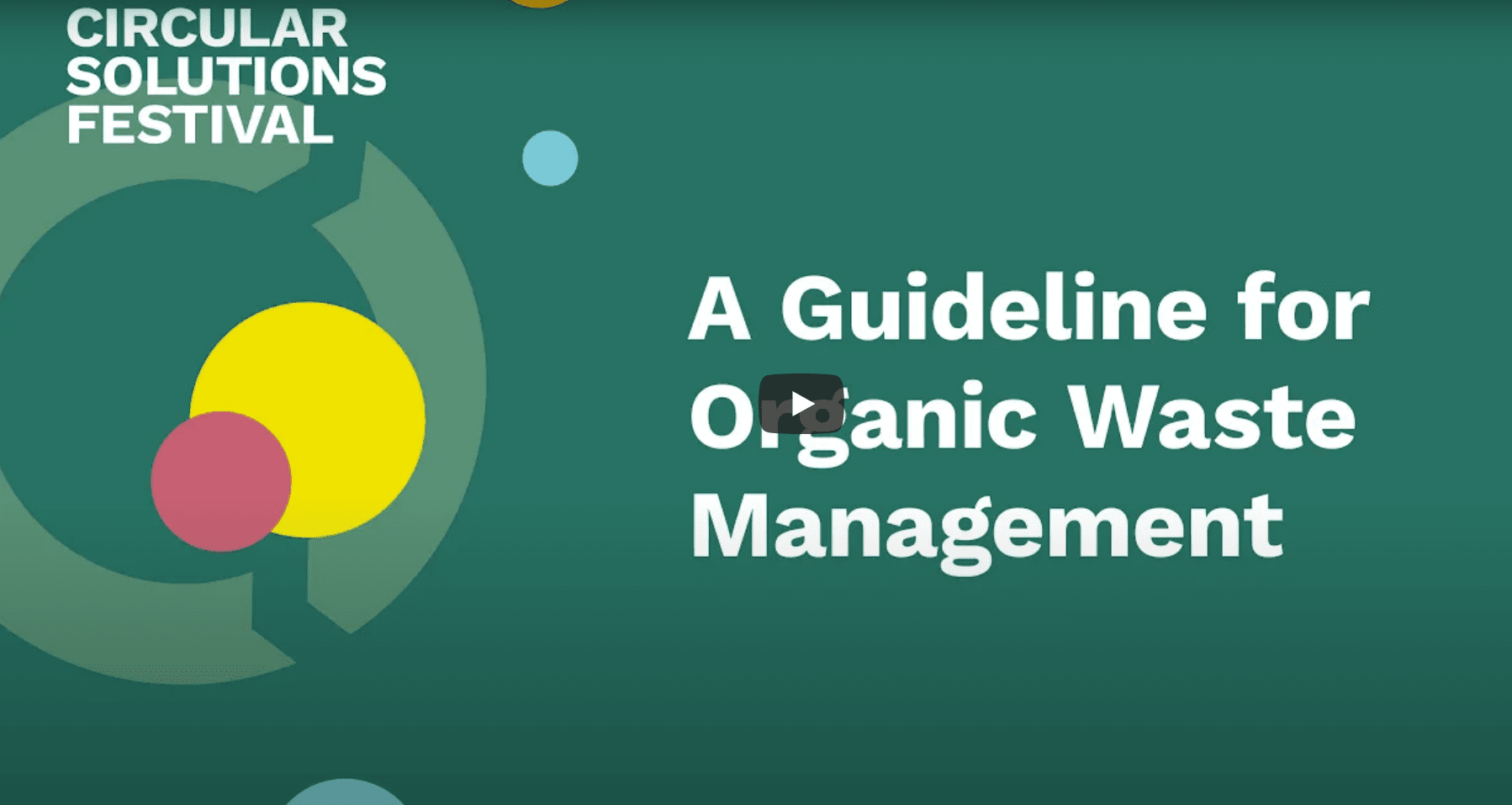
Untreated organic residues pose a major potential hazard to humans and the environment. At the same time, organic waste holds great potential for energetic and material utilization. This webinar gives an overview of the current organic waste management system in Ethiopia and discusses adapted logistics and treatment concepts for different settlement structures.
Watch on YouTube
This discussion paper explores how data interoperability can improve litter monitoring. Interoperability of litter monitoring data can improve information quality and increase data quantity. Better and more data are critical for litter monitoring, as waste-related information is currently scarce and difficult to obtain. This paper introduces opportunities and challenges for data interoperability and analyses existing digital solutions to provide best practice examples.
Download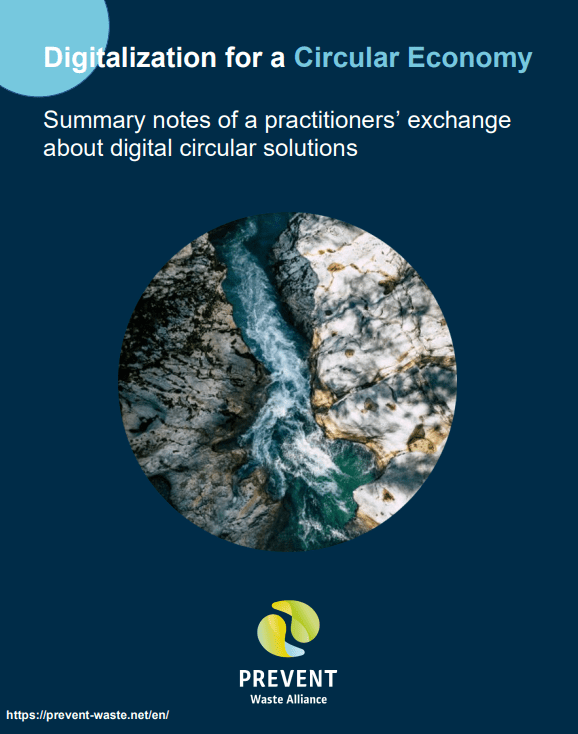
To get a better understanding of the roles of and interconnections between different digital actors within the PREVENT Waste Alliance, a mapping of digital solutions for circular economy was created. The mapping suggests that most PREVENT members cluster at the collection-recycling interface and that interoperability between the different solutions/platforms is necessary to increase impact in an international and fragmented market.
Download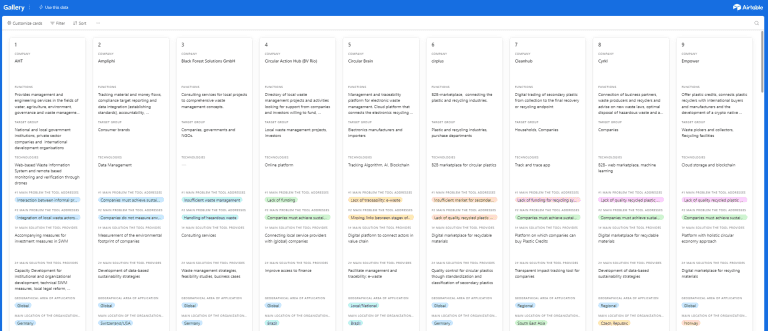
The Airtable provides a structured overview on digital solutions within PREVENT.
Open Airtable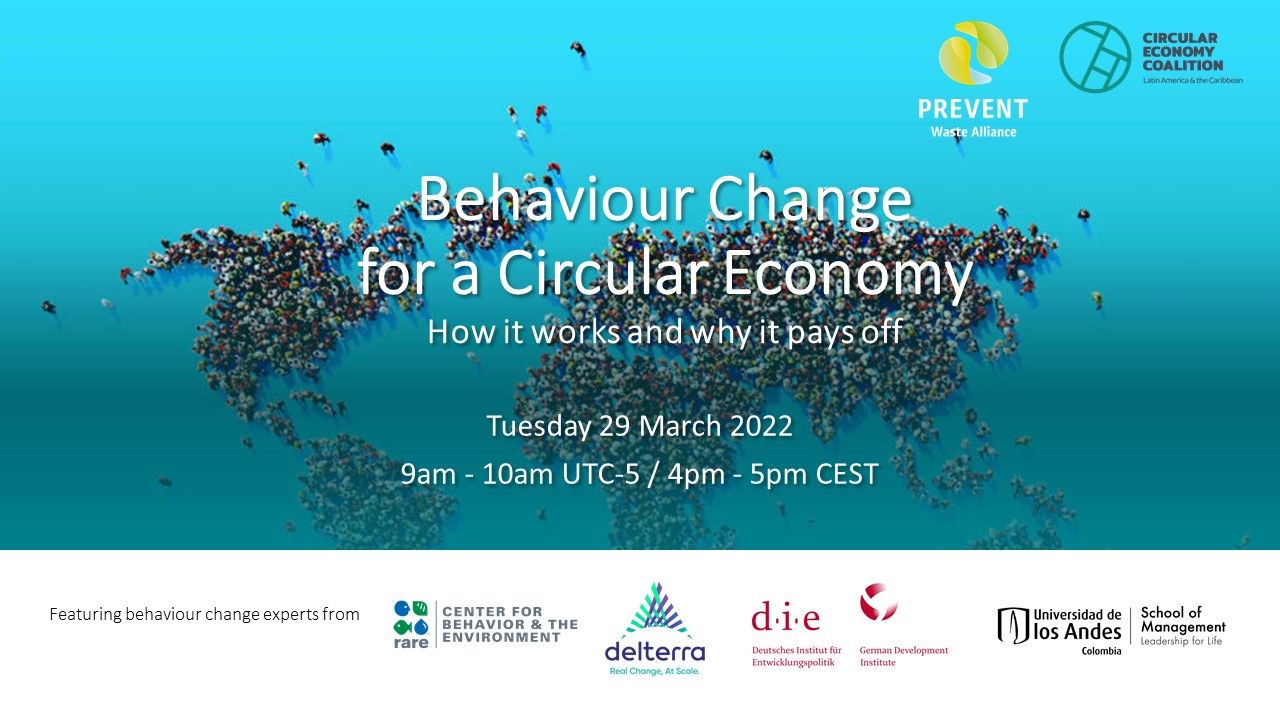
Many circular economy solutions, such as recycling, reuse and refurbishment schemes, will only be successful if people change their behaviour. The PREVENT Waste Alliance and the Circular Economy Coalition for Latin America & the Caribbean have organized three webinars on behaviour change. Focus topics are: 1) How behaviour change works and why it pays off 2) How to use material incentives effectively 3) How to support reuse, repair and refurbishment schemes.
Watch on YouTube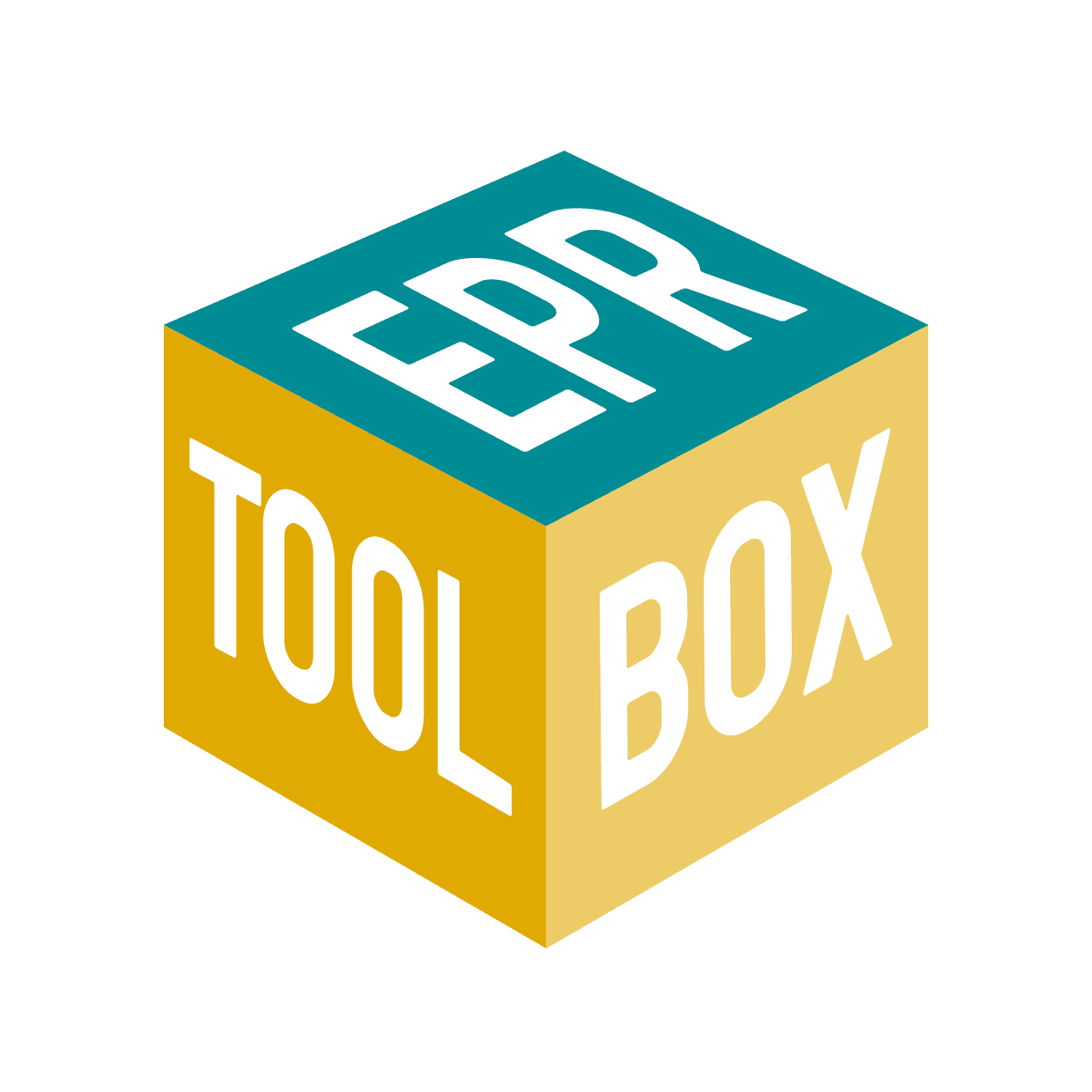
The EPR Toolbox developed by the PREVENT Waste Alliance is a collection of internationally relevant knowledge on the topic of EPR for packaging.